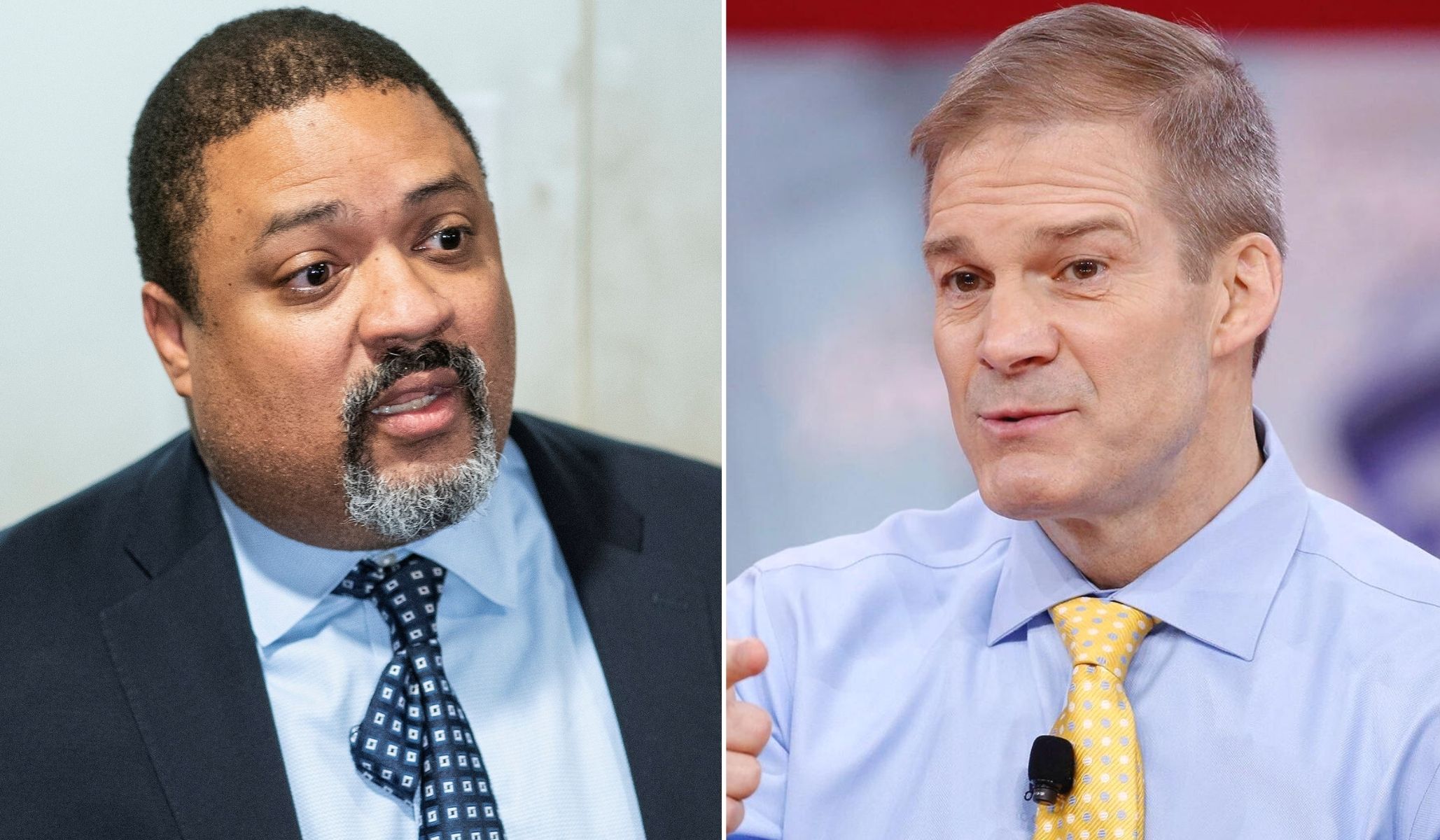


Maybe there’s still some sanity in the world after all.
Manhattan District Attorney Alvin Bragg has dropped his lawsuit against House Judiciary Committee Chairman Jim Jordan. The two sides settled last night in an agreement that will allow the House committee to obtain testimony from Mark Pomerantz, the prosecutor who ran the Donald Trump probe at the DA’s office until he quit last year, but will also permit Bragg’s office to participate in that deposition and protect whatever legitimate interests the DA and the New York State government may have.
As I posted here last night, the Second Circuit federal appeals court scheduled oral argument in Bragg’s lawsuit against Jordan, after both sides got their briefs in on Friday. Bragg and Pomerantz had filed an appeal Wednesday night after the federal district court in Manhattan (Judge Mary Kay Vyskocil) ruled against them that afternoon.
While Bragg objected to Jordan’s investigation in general (a legally untenable position for reasons we’ve discussed (see here, and links therein)), the immediate issue was the subpoena Jordan issued for Pomerantz, which called for him to testify on Thursday – i.e., two days ago, though the testimony was blocked by the Second Circuit temporarily as it considered the appeal.
Given that neither a court nor a state DA has the authority to tell Congress what it may or may not investigate, Bragg had no real chance of getting the Pomerantz subpoena quashed. Yet, because Congress does not have general oversight authority over the law-enforcement arm of a sovereign state, there are probably areas of questioning about the operations of Bragg’s office that should be off limits. There was a chance the DA could place some limits on the House Judiciary Committee.
To the extent one can read anything into terse scheduling orders, the appeals court did not seem to think much of Bragg’s claims, allotting just five minutes of argument per side in Tuesday’s scheduled hearing. Whatever tea-leaf reading may have gone on, the two sides saw the wisdom in compromising.
Pomerantz’s deposition is now scheduled to take place on May 12, presumably behind closed doors. The settlement agreement allows for Bragg’s general counsel, Leslie Dubeck, to be present. Between Dubeck, Pomerantz, and Pomerantz’s highly regarded counsel, Ted Wells, they will have the bases covered in terms of objecting to questions that could infringe on privileges the DA’s office may have under the Constitution and New York law (the latter, for example, makes grand jury information secret, just as federal law does).
I still think this is theater.
No one doubts that a state DA has the power to indict a former president and current presidential candidate, and should do so if there has been a serious crime provable by strong evidence. It’s an abuse of power, however, as well as really stupid, to do so in a patently unserious case brought for partisan reasons based on weak evidence.
Similarly, no one doubts that the House of Representatives has the authority to examine how states use federal funding, including funding that goes to a state DA’s office for law enforcement purposes. Plus, though the states are sovereign in our system, the Fourteenth Amendment gives Congress some measure of power to ensure that states are respecting the civil rights and equal protection guarantees of U.S. citizens. But all that said, those congressional powers should not be exploited in a partisan manner on behalf of an indicted former president who is politically aligned with the leaders of the relevant House committee. It’s not like former President Trump won’t be able to make every available claim about Bragg’s abuse of power in the New York courts.
So Bragg shouldn’t be doing what he is doing, which prompted Jordan to respond in his own over-the-top way. There is risk in this for both of them.
Bragg’s prosecution has, for the moment, given Trump a political boost, and it could be embarrassing for Bragg if the case gets thrown out by the court or if Trump is acquitted – there’s a good chance of both.
For Jordan, whatever good he does in spotlighting the damage progressive prosecutors like Bragg are doing could be undone if the public perception is that he is just a cat’s paw for Trump; and, as I mentioned a few days ago, the Democrats are not going to sit idle while Republicans grill Pomerantz; they are going to be prepared to walk the very able Pomerantz through chapter and verse of why he believes Trump is guilty of crimes more serious than the one Bragg has indicted.
But that’s for the coming weeks. For now, I’ll just repeat what I said about the Bragg v. Jordan saga earlier this week:
[I]n a sane world, both Bragg and Jordan would respect the fact that each has legitimate interests, and they would negotiate a compromise in which the committee got information to which it was entitled while Bragg withheld information about his office’s policy deliberations and exercises of prosecutorial discretion.
I went on to opine that this is not the world we’re in. Thankfully, I was wrong about that … at least for a day.
